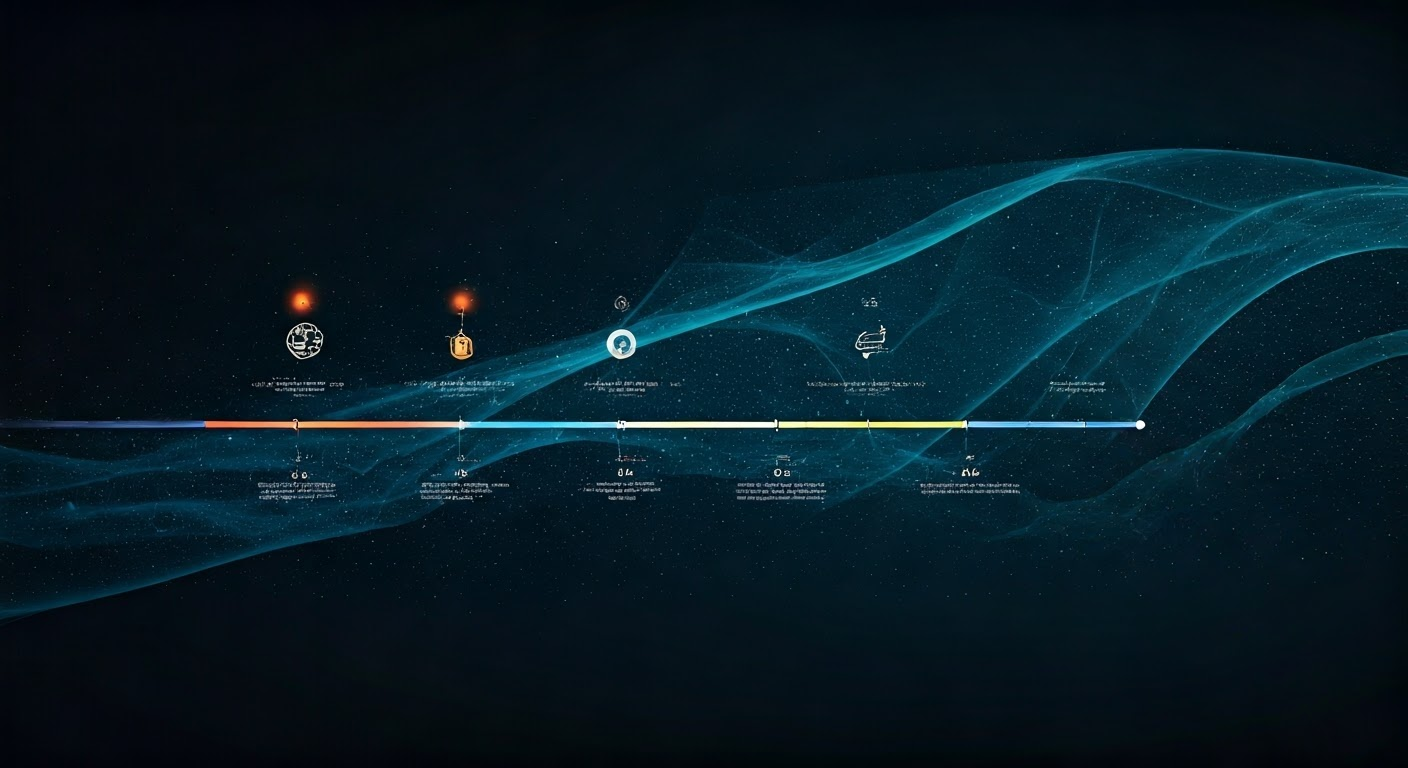April 17, 2025
Google AI Brain: The Future of Artificial Intelligence

Greg Kopyltsov
Founder
No items found.


At the heart of Google Research lies the extraordinary Google AI Brain and Google Brain team, a pioneering force in the realm of artificial intelligence. Google AI Brain is not merely an academic pursuit; it's a dynamic engine propelling innovation across a spectrum of fields. From transforming how we interact with technology through enhancements in natural language processing and generative AI to revolutionizing industries with powerful machine learning models, Google AI Brain's influence is undeniable.

The Google AI Brain project, born in 2011, began as a humble side project by Google Fellows Jeff Dean and Greg Corrado. Its initial focus on open-ended machine learning research, combined with the sheer scale of Google's computational resources, rapidly transformed it into a pivotal force within Google.
The team's early successes, such as teaching a neural network to recognize cats from YouTube videos, captured global attention and solidified Google AI Brain's reputation as a trailblazer in artificial intelligence. As the project flourished, it attracted some of the brightest minds in the field, including renowned deep learning expert Geoffrey Hinton, further accelerating its groundbreaking work on the transformer architecture.
In a strategic move to consolidate its artificial intelligence prowess, Google merged its subsidiary, DeepMind, known for its achievements in AI, with Google Brain to form Google DeepMind. This powerful union brings together some of the most brilliant minds in AI, poised to accelerate the development of even more powerful and sophisticated artificial intelligence systems.
The legacy of Google AI Brain is etched in its numerous milestones. One standout achievement is its contribution to the evolution of Google Translate, where it replaced the traditional phrase-based approach with the innovative Google Neural Machine Translation (GNMT) system. By leveraging vast datasets and sophisticated neural networks, GNMT drastically improved translation accuracy and fluency, particularly in challenging language pairs like Chinese to English.
Beyond language, Google AI Brain's reach extends to enhancing the capabilities of various Google products. Its impact is evident in improvements to Android's speech recognition, Google Photos' image search, Gmail's smart reply feature, and YouTube's video recommendations, making these services more intuitive and useful.
The integration of artificial intelligence into Google's products and services is not merely an added feature; it's a fundamental shift towards a more user-centric approach. By seamlessly embedding AI into its offerings, Google aims to anticipate user needs, simplify tasks, and personalize experiences in unprecedented ways.
A prime example of this transformation is the evolution of Google Search, a cornerstone of Google's services. AI is no longer limited to understanding keywords but now interprets the intent behind searches. This allows it to deliver highly relevant results and even provide answers in a conversational tone through featured snippets, knowledge panels, and voice search.
Moreover, Google AI Brain's expertise in natural language processing is reshaping user interactions. Google Assistant, for instance, has evolved from a simple voice-activated assistant to an intelligent companion capable of understanding complex requests, engaging in natural conversations, and even anticipating user needs through proactive assistance.
Google AI Brain's capabilities stem from its mastery of fundamental artificial intelligence technologies, particularly machine learning, deep learning, and neural networks. These form the bedrock upon which Google AI Brain builds and trains its sophisticated algorithms.
The availability of vast datasets, coupled with Google's unparalleled computational infrastructure, enables Google AI Brain to push the boundaries of generative AI models and these technologies. This has resulted in the development of increasingly sophisticated models capable of tackling intricate problems, driving innovation across multiple domains.
Central to Google AI Brain's power are machine learning algorithms—sets of rules that enable computers to learn from the learning process, data and make predictions or decisions. These algorithms are the workhorses of AI, allowing systems to adapt and improve their performance on specific tasks without explicit programming.
Neural networks, a class of machine learning algorithms inspired by the structure of the human brain, form the core of Google AI Brain's approach. These recurrent neural networks consist of interconnected nodes (neurons) organized in layers, mimicking the way the brain processes information. By adjusting the connections between these neurons through a process called training, neural networks can learn complex patterns and relationships from data.
Google AI Brain leverages different types of neural networks, including deep neural networks, which boast multiple layers for processing vast amounts of data with greater sophistication. This enables the development of AI systems, including artificial general intelligence (AGI), capable of understanding images, processing natural language, recognizing speech, and even making decisions in complex environments, much like humans do.
Google AI Brain has played a crucial role in advancing the fields of natural language processing (NLP), computer science, and computer vision, enabling machines to comprehend and interact with the world more intuitively. These achievements have far-reaching implications for how we communicate with technology and extract insights from visual data.
In NLP, Google AI Brain's breakthroughs are evident in:
Similarly, Google AI Brain is driving innovation in computer vision, empowering machines to "see" and interpret visual data:

Beyond enhancing Google's internal products and services, Google AI Brain fuels a wide array of impactful projects spanning diverse fields. The open-source nature of its core technology, TensorFlow, further democratizes access to AI, empowering researchers and developers worldwide to contribute to its advancement.
From transforming healthcare with predictive analytics and diagnostics to revolutionizing agriculture with AI-powered tools for crop monitoring and yield optimization, Google AI Brain is actively shaping a future where AI benefits humanity on a global scale.
The influence of Google AI Brain is perhaps most palpable in the transformative improvements to Google Search and Google Assistant. These everyday tools have been infused with an unprecedented level of intelligence, making them more intuitive, helpful, and capable than ever before.
Google Search has transcended its keyword-based origins to embrace the intricacies of natural language. AI empowers Google Search to decipher the intent behind complex queries, considering factors like search history, location, and even the user's current context to deliver hyper-relevant results. Features like featured snippets, knowledge panels, and voice search provide immediate answers and a more conversational search experience.
Similarly, Google Assistant has shed its rudimentary virtual assistant image to emerge as an indispensable AI companion. Google AI Brain's advancements in natural language understanding, speech recognition, and context awareness have imbued Google Assistant with remarkable conversational capabilities. It can now comprehend complex requests, engage in natural dialogues, and proactively offer assistance, truly blurring the lines between human and machine interaction.
Google AI Brain's potential extends far beyond the digital realm, making significant inroads into healthcare, where its ability to analyze vast datasets and identify patterns is proving invaluable. This is particularly evident in the areas of predictive analytics and diagnostics, revolutionizing how medical professionals approach patient care.
Predictive analytics, powered by Google AI Brain's machine learning models, enables healthcare providers to anticipate potential health risks and intervene proactively. By analyzing patient data, medical history, and even genetic information, these models can identify individuals at risk of developing chronic conditions or experiencing adverse events, facilitating timely interventions to improve outcomes.
In diagnostics, Google AI Brain is assisting medical professionals in making faster and more accurate diagnoses. For instance, its image recognition capabilities are being used to detect diseases like cancer from medical images with remarkable accuracy, sometimes even surpassing human experts. These AI-powered tools act as a second pair of eyes, aiding doctors in identifying subtle anomalies and confirming diagnoses, ultimately leading to more effective treatment plans.
As with any transformative technology, the development of Google AI Brain is not without its ethical considerations and challenges. Google recognizes the importance of responsible AI development, placing paramount importance on issues such as user privacy, data security, and the potential for algorithmic bias.
Balancing innovation with ethical considerations remains an ongoing priority. As Google AI Brain evolves, addressing challenges like ensuring fairness and transparency in AI algorithms, managing the societal impact of job displacement, and navigating the evolving landscape of AI regulation will be crucial to harnessing its power for the greater good.
The rapid pace of innovation in artificial intelligence necessitates a parallel focus on ethical considerations, particularly privacy and security, to ensure that AI benefits humanity without compromising fundamental rights. Google AI Brain's development is deeply rooted in these principles, recognizing that trust is paramount.
Data privacy is not an afterthought but a core design principle in Google AI Brain's architecture. Google employs stringent data anonymization and encryption techniques to safeguard user information. Furthermore, users are given greater control over their data, enabling them to choose how their information is used to personalize AI-powered experiences while preserving their privacy.
Security is another critical aspect of responsible AI development. As AI systems become more integrated into our lives, ensuring their robustness against malicious attacks is paramount. Google invests heavily in cybersecurity measures to protect Google AI Brain's infrastructure and algorithms from unauthorized access, data breaches, and potential manipulation, safeguarding both users and the integrity of AI systems.
Addressing bias in AI algorithms is crucial to building fair and equitable AI systems. Google AI Brain recognizes that even the most advanced algorithms are only as good as the data they are trained on. If the training data reflects existing societal biases, the resulting AI systems may perpetuate or even amplify these biases, leading to unfair or discriminatory outcomes.
To mitigate bias and ensure fairness, Google AI Brain employs a multi-faceted approach. This includes:
KeywordSearch has an AI Audience builder that helps you create the best ad audiences for YouTube & Google ads in seconds. In a just a few clicks, our AI algorithm analyzes your business, audience data, uncovers hidden patterns, and identifies the most relevant and high-performing audiences for your Google & YouTube Ad campaigns.
You can also use KeywordSearch to Discover the Best Keywords to rank your YouTube Videos, Websites with SEO & Even Discover Keywords for Google & YouTube Ads.
If you’re looking to SuperCharge Your Ad Audiences with AI - Sign up for KeywordSearch.com for a 5 Day Free Trial Today!
In conclusion, Google AI Brain stands at the forefront of artificial intelligence innovation, shaping diverse sectors from healthcare to search algorithms. Its advancements in machine learning, natural language processing, and computer vision have redefined technological possibilities. As we navigate the future, it becomes crucial to address ethical considerations, ensuring privacy, fairness, and overcoming biases in AI algorithms. Google AI Brain's impact extends beyond tech giants, offering potential benefits for small businesses and contributing to environmental sustainability. By embracing innovation responsibly, Google sets a benchmark for balancing progress with ethical standards, paving the way for a smarter and more inclusive future.
Google AI Brain differentiates itself through its unparalleled scale, access to Google's vast datasets and computational resources, and its integration into a wide array of Google products used by billions worldwide.
Google AI Brain is being used to develop solutions for optimizing energy consumption in data centers, improving traffic flow in cities, and developing renewable energy sources, contributing to a more sustainable future.
Yes, Google makes many Google AI Brain technologies available through cloud-based platforms and APIs, allowing small businesses to leverage powerful AI capabilities without massive investments.
Google AI Brain continues to advance rapidly, with recent updates focusing on developing more efficient and robust deep learning models, improving language understanding, and creating AI for social good.
Google has established AI Principles and an ethics board to guide the responsible development and deployment of AI Brain, focusing on fairness, transparency, and accountability.